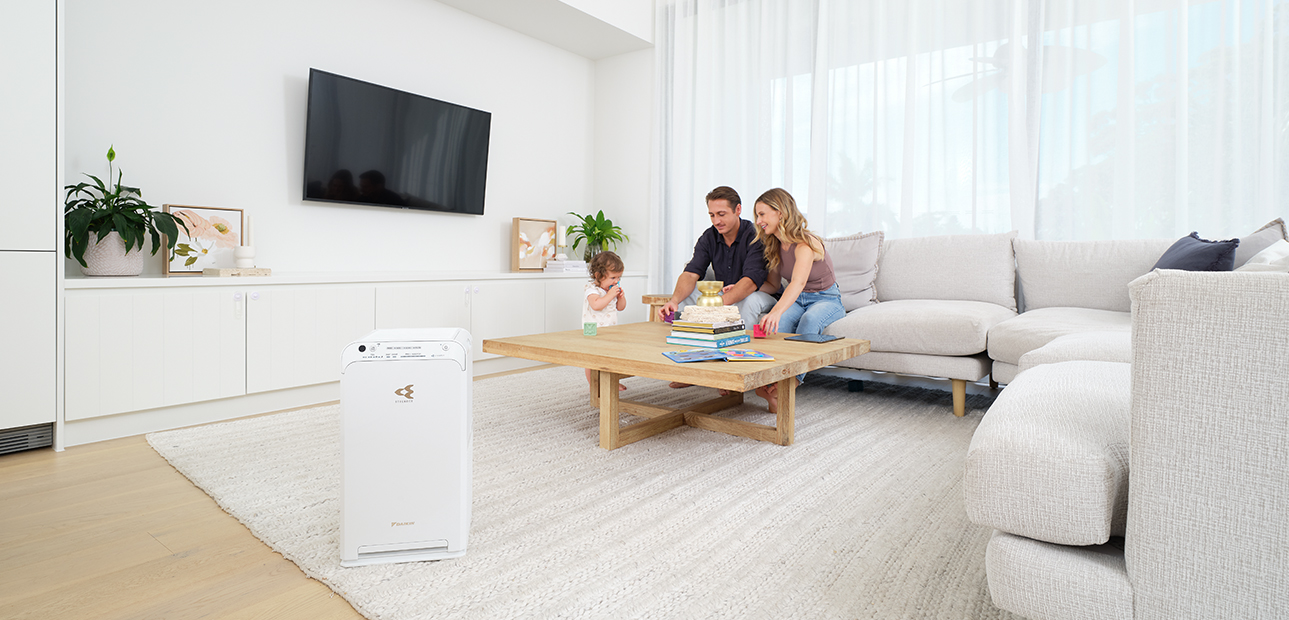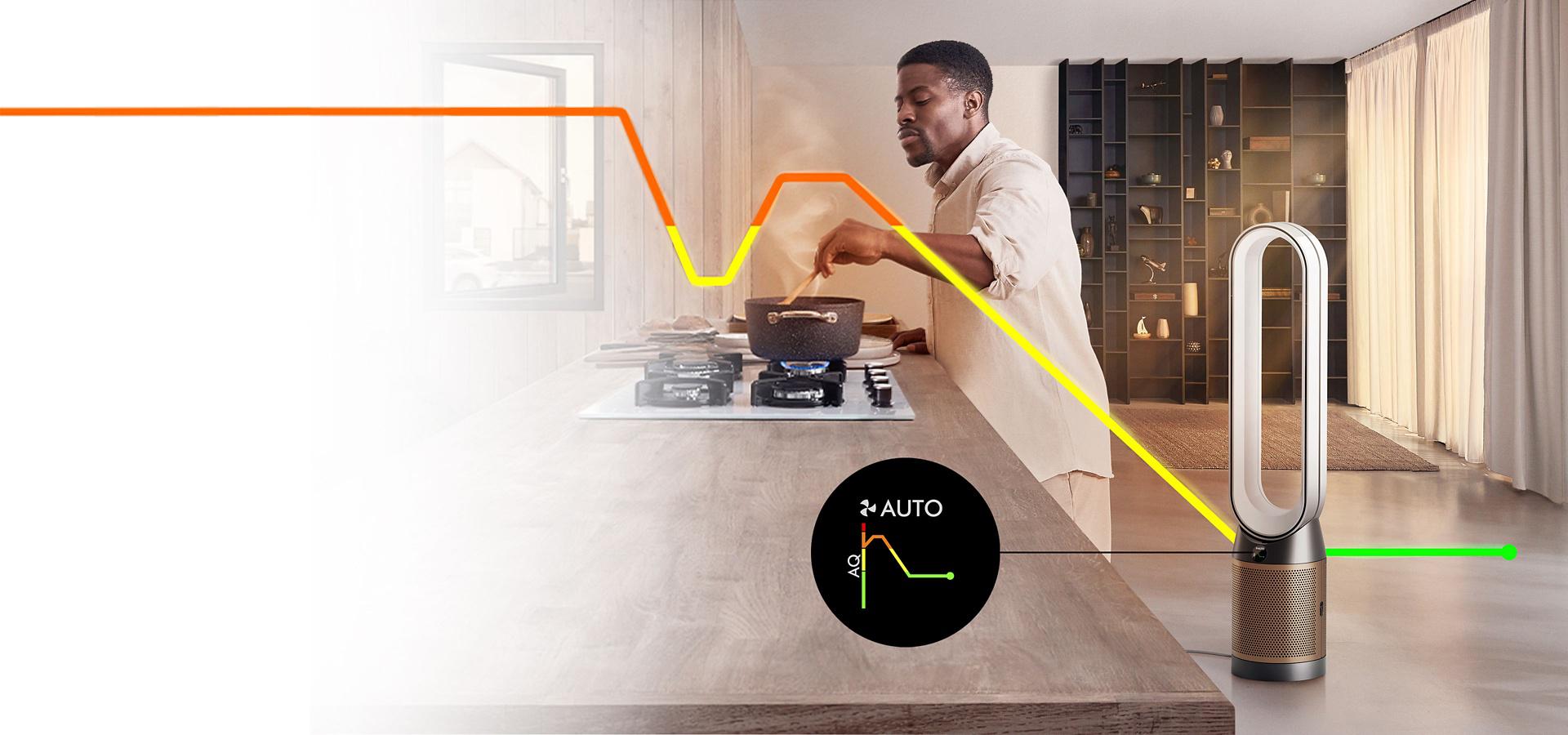Featured
Table of Contents
- – Understanding Allergic Reactions and Triggers
- – Can Air Purifiers Assist With Allergies?
- – The Scientific Research Behind Air Purifiers ...
- – Are Air Purifiers Right for You? Aspects to C...
- – Maximizing Air Purifiers for Allergies
- – Beyond Air Purifiers: A Multi-Pronged Techniqu...
- – Living a Breath Easier Life with Allergies

Air cleansers are typically promoted as a service, appealing cleaner air and alleviation from allergy signs. Are air cleansers truly worth the financial investment for allergic reaction sufferers?
Understanding Allergic Reactions and Triggers
To comprehend the role of air purifiers, allow's very first delve right into allergies and their triggers:
- The Allergic Reaction: Allergies occur when your body immune system panics to a safe compound, like pollen or allergen. This response causes the release of histamines, triggering allergic reaction signs and symptoms like sneezing, coughing, scratchy eyes, and a runny nose.
- Usual Irritants: Indoor irritants consist of dust termites, pet dog dander, mold spores, plant pollen that wanders indoors, and even cockroach allergens. These airborne particles can aggravate your airways and cause allergic reaction signs.
Can Air Purifiers Assist With Allergies?
Air cleansers function by attracting in air, removing contaminants, and releasing cleaner air back into the area. Below's how they can potentially profit allergy victims:
- Capturing Irritants: HEPA (High-Efficiency Particulate Air) filters, a common type used in air purifiers, are highly effective at recording airborne allergens like dust mites, pet dander, and pollen. By removing these triggers from the air you breathe, air purifiers can help in reducing allergy symptoms.
- Improved Air High Quality: Air purifiers can additionally get rid of various other toxic irritants from the air, such as smoke, dust, and unpredictable natural substances (VOCs) This overall renovation in air high quality can be valuable for allergy patients that are delicate to these additional triggers.
The Scientific Research Behind Air Purifiers and Allergies
Research studies have actually shown that air purifiers can be helpful in decreasing allergy symptoms. Right here's an appearance at some essential research searchings for:
- A 2019 testimonial published in the journal "Present Allergic reaction and Bronchial asthma Reports" ended that air purifiers with HEPA filters can be efficient in reducing allergy signs and boosting lifestyle for people with allergic rhinitis (hay high temperature)
- A 2018 research released in the journal "Annals of Allergy, Asthma & Immunology" found that using an air purifier with a HEPA filter in the bedroom dramatically lowered allergen allergen levels and boosted rest high quality in individuals with bronchial asthma.
Nevertheless, it is very important to keep in mind that study also recommends some limitations:
- Air Purifier Protection: Air cleansers are most efficient in the area where they are positioned. Their impact on allergens in other components of the residence could be minimal.
- Extent of Allergies: While air cleansers can assist, they may not be a complete option for severe allergies. Medications and other allergy monitoring approaches might still be essential.
Are Air Purifiers Right for You? Aspects to Consider
Below are some vital variables to take into consideration when choosing if an air purifier deserves it for your allergic reactions:
- Intensity of Allergies: If your allergic reactions are light and well-controlled with medication, an air purifier may not be essential. For those with modest to severe allergic reactions, an air purifier can be a beneficial tool in taking care of signs and symptoms.
- Kinds of Irritants: Think about the primary triggers for your allergic reactions. Air cleansers are most reliable for airborne allergens like allergen, pet dog dander, and pollen. They might not be as useful for allergens like mold and mildew that expand on surfaces.
- Lifestyle and Environment: If you have pet dogs, live in a location with high plant pollen counts, or have issues regarding indoor air quality, an air purifier can be advantageous.

Maximizing Air Purifiers for Allergies
If you choose to purchase an air purifier for allergic reactions, below are some ideas for maximizing its performance:
- Pick a HEPA Filter: Search for an air purifier with a HEPA filter licensed to record fragments as small as 0.3 microns.
- Right Dimension for the Area: Make certain the air purifier has a Clean Air Delivery Price (CADR) that is ideal for the size of the area you plan to utilize it in.
- Placement Issues: Place the air purifier in the space where you invest one of the most time, such as your room.
- Routine Filter Upkeep: Replace HEPA filters according to the manufacturer's guidelines to maintain ideal efficiency.
- Integrate with Various Other Strategies: Air purifiers are not a one-size-fits-all service. Combine them with other allergic reaction monitoring strategies like medication, normal cleansing, and allergen-proof bed linen.
Beyond Air Purifiers: A Multi-Pronged Technique to Allergic Reaction Management

While air purifiers can be an important device in your allergic reaction toolbox, they are not a miracle drug (If you're looking to buy an Air Purifier then Air Cleaners Australia is the best destination.). An extensive strategy that combines air purification with other techniques is crucial to attaining long-lasting allergic reaction alleviation. Below are some additional methods to take into consideration:
- Medication: Antihistamines, decongestants, and nasal corticosteroids, prescribed by your medical professional, can effectively manage allergic reaction signs and symptoms.
- Allergy Screening and Immunotherapy: Identifying your details allergens via allergy screening can lead the method for immunotherapy, a therapy that helps desensitize your immune system to irritants in time.
- Air High Quality Administration: Normal cleaning with a HEPA-filtered vacuum cleaner and allergen-specific cleaning items can significantly decrease dust mites, family pet dander, and various other irritants in your house.
- Managing Moisture: Mold grows in damp settings. Making use of a dehumidifier can aid regulate humidity levels and protect against mold and mildew growth, a typical indoor allergen.
- Way of life Adjustments: If you have allergies to pollen, remaining indoors during optimal pollen periods and showering after investing time outdoors can aid decrease exposure.
- Bed linens and Surface Areas: Framing pillows and mattresses in allergen-proof covers can dramatically reduce allergen direct exposure. On a regular basis cleaning bed linen in warm water aids eliminate irritants.
Living a Breath Easier Life with Allergies
Remember, taking care of allergies is a constant procedure. By understanding your triggers, applying a multi-pronged approach, and potentially incorporating an air purifier into your strategy, you can dramatically reduce allergy symptoms and take a breath less complicated.
Additional Factors To Consider:
- Consulting a Medical professional: If your allergic reactions are severe or otherwise well-controlled with medication and way of life modifications, seek advice from an allergist for tailored suggestions.
- Air High Quality Monitoring: Think about using an air high quality display to track irritant degrees in your home and change your administration methods as necessary.
- Long-Term Financial investment: A top quality air purifier can be a long-lasting financial investment in your wellness and well-being.
By taking a proactive approach and adopting a combination of these methods, you can create a healthier and allergy-friendly environment, allowing you to take pleasure in a breath simpler life.
Table of Contents
- – Understanding Allergic Reactions and Triggers
- – Can Air Purifiers Assist With Allergies?
- – The Scientific Research Behind Air Purifiers ...
- – Are Air Purifiers Right for You? Aspects to C...
- – Maximizing Air Purifiers for Allergies
- – Beyond Air Purifiers: A Multi-Pronged Techniqu...
- – Living a Breath Easier Life with Allergies
Latest Posts
Fighting the Mold And Mildew Menace: Are Air Purifiers Well Worth It?
The Facts About Is It Safe To Automate Cleaning For Your Yeti Rambler? Revealed
The smart Trick of Are Yeti Ramblers Compatible With Dishwashers? That Nobody is Talking About
More
Latest Posts
Fighting the Mold And Mildew Menace: Are Air Purifiers Well Worth It?
The Facts About Is It Safe To Automate Cleaning For Your Yeti Rambler? Revealed
The smart Trick of Are Yeti Ramblers Compatible With Dishwashers? That Nobody is Talking About